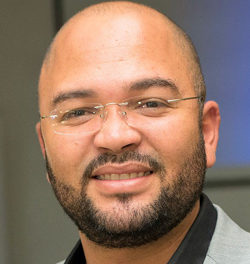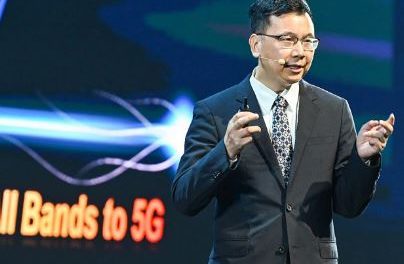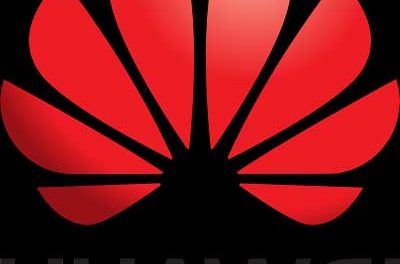
Why a single internet/telecom gateway is a bad idea

Recently there has been news that a single internet/telecom gateway (SIG) is being proposed for Namibia by our government. This article will explore the notion of a gateway and its pros and cons.
According to Tshuutheni Emvula, co-founder of The Tech Guys, Namibia’s voice/data communication networks interact with the global community.
“We communicate domestically and with entities outside of Namibia’s border largely through the following means: phone calls, Emails, WhatsApp messages, Skype calls and and Internet browsing data,” he explained.
Emvula said most of the users are familiar with the fact that to access these services and to start doing any of the above-mentioned things as an action, one would need a relevant device (e.g. computer, cellphone/smartphone) and a contract with a Telecoms operator (Pre-paid SIM card or contract based agreement). But let us briefly focus on what happens when you are on the receiving end of one or several of the above methods of communication.
“Let us say somebody is calling your Telecom 085 number from Zimbabwe on a mobile phone that has a SIM card issued by their 2nd largest network which is called Telecel. How does that phone call reach you when Telecel does not have a direct cable link or agreement with Telecom Namibia to access each other’s networks?,” he added.
According to Emvula, gateways provide a point of interface into a network with certain technical protocols that must be met if voice/data information is to flow into or out of said network.
Telecoms tend to operate their own gateways but there are also non-telecom gateway operators that provide the service of connecting global networks to one another, thereby allowing users of networks in one country to communicate with user of a network in another.
In a streamlined nutshell, he said this is in fact the model agreed to between the Communications Regulatory Association of Namibia (CRAN) and our 3 national telecoms operators MTC Namibia, Telecom Namibia and Paratus Telecom so that they may deliver their services to us.
Emvula said a Single Internet/Telecoms Gateway would theoretically force all voice/data communications in Namibia through a single gateway effectively making it a choke point and will stifle competitiveness since one company will set the price of how voice/data communications are sent into and out of Namibia.
“The company that would set up the SIG would become the de-facto telecom monopoly in Namibia as all current telecoms will have to pay for and use its gateway for access to the outside world. If an SIG was established, it would likely become an SOE or something similar as, by nature, it reports to and is directed by government. Its announcement would most likely have an immediate negative effect on Namibia’s status with global competitiveness watchdogs. Considering the cost of the technology involved, it would easily run into the billions of Namibia dollars to initially set up and maintain every year. The Namibian taxpayer will for a great part most likely burden this cost,” he explained.
Emvula said there are not many reasons that warrant an SIG and, in many ways the very idea itself is obsolete.
According to him, the reasons have severe policy and technologically related setbacks in being valid, as communications technology is rapidly changing how and what we connect to electronic communications networks.
“There are fairly advanced technological trends that have yet to reach Namibia’s shores that will drastically change the world over the next 20 years such as the ‘Internet of Things’ (IoT) that is looking to connect even everyday mundane household objects such as your underwear to the Internet,” he added.
Another major drawback he said, is that as global communication technology permeates deeper into human societies, given the explosive global democratization of communication technology over the last 40 years, it is highly unlikely that telecoms and governments will be the sole purveyors of communication enabling platforms and technology in the very near future.
“For example Google and Facebook have both invested hundreds of millions in USD into research on ambitious projects to globally beam Internet access down from high-altitude weather balloons and a global network of drones, respectively. Successful pilot projects have already been conducted in many parts of the world and there is nothing to suggest that these projects will not be actively deployed in many parts of the world, including here in Namibia, in less than 2-3 years,” he added.
According to Emvula it would also be untenable to imply that there is a relevant immediate existential threat to the national stability of Namibia, and even then it’s more doubtful that such a threat can, in any way, be addressed by an SIG. “Unlike China, Namibia does not posses the means to manufacture the components needed to maintain nor the adequate human resources to interpret the analytical data produced by an SIG so these duties would immediately have to be outsourced to foreign entities,” he said
Further on the issue of security is that an SIG becomes an even greater threat to Namibia’s national stability if a capable hacking outfit were to find vulnerability in its access system and is able to take control of the ‘kill-switch’ and hold our government and national communications at ransom.
Having discussed some of the reasons arguing for an SIG, he said it is noticeable that the very idea of an SIG tends to become self-defeating in today’s context as it’s based on obsolete risk scenario modeling and technology.
“Another obvious flaw is that an SIG stands in direct opposition to much of current national policy. The drive for truly Universal Access to digital services that the Namibian government has established for itself, freedom of information for Namibians on all media platforms, the ‘always online’ e-Governance platform implementation plans, robust emergency response services and disaster management (which requires multiple redundant nodes of communication to be effective), digital delivery of state controlled media broadcasts and making our communications market sector more competitive cannot be reconciled with the notion of an SIG,” he added.
“Arguably Namibia’s current largest national threat to stability is the fact that there are no laws around electronic transmissions, transactions and cybercrime in an increasingly ‘digital first’ world. Namibia’s digital infrastructure is regularly used as a platform to launch hacking attacks around the globe and we have no current ability to prosecute those responsible if we can catch them. In the event that a Namibian nationals digital identity is stolen and then linked to a serious crime such as a terror attack, Namibia currently has no recourse to defend such citizens. This is a much larger threat than anything an SIG can protect against,” he said
Bluntly put, a SIG is a very bad idea on all fronts except for the pockets of its private company shareholders, he concluded.
Caption: Tshuutheni Emvula, co-founder of The Tech Guys













































